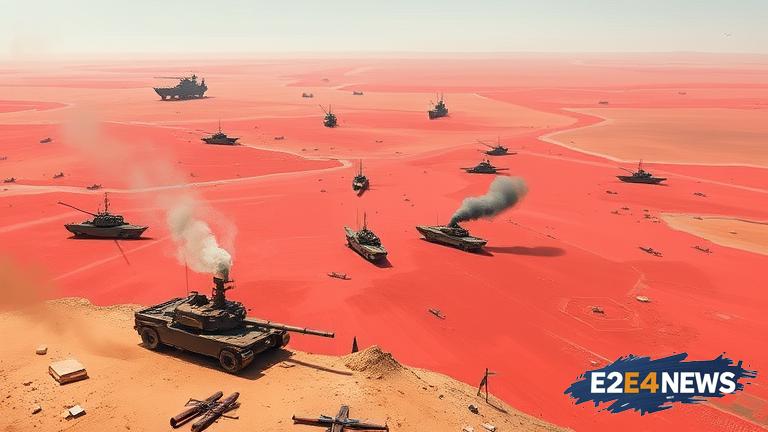The United Nations has voiced its concern over the recent escalation of violence in the Red Sea, perpetrated by Houthi rebels. The Houthi insurgency, which has been ongoing since 2015, has been marked by repeated attacks on Saudi-led coalition forces and international shipping vessels. The latest incident involves a Houthi-claimed attack on a Saudi-led coalition ship, which has raised fears of a broader conflict in the region. The UN has called for restraint and de-escalation, warning that further violence could have severe consequences for regional stability and global trade. The Red Sea is a critical shipping lane, with millions of barrels of oil passing through it every day. Any disruption to these shipping lanes could have a significant impact on the global economy. The Houthi rebels, who are backed by Iran, have been accused of using the port city of Hodeidah as a base for their operations. The Saudi-led coalition has been conducting airstrikes against Houthi targets in the city, in an effort to disrupt their supply lines and weaken their grip on the region. The conflict has already had a devastating impact on the civilian population, with thousands of people killed or injured and millions displaced. The UN has warned that the situation is on the brink of catastrophe, with widespread famine and disease outbreaks a real possibility. The international community has been urged to take action to prevent further escalation, with the UN calling for a ceasefire and a return to peace talks. The US, UK, and other Western powers have also expressed concern over the situation, with some calling for increased pressure on Iran to rein in its Houthi allies. The situation remains volatile, with both sides dug in and refusing to back down. The Houthi rebels have vowed to continue their attacks, while the Saudi-led coalition has pledged to take all necessary measures to protect its ships and interests. As the situation continues to deteriorate, the international community is bracing itself for the worst. The UN has warned that the conflict could have far-reaching consequences, not just for the region but for the entire world. The global economy is already feeling the effects of the conflict, with oil prices rising and trade disrupted. The situation is a stark reminder of the need for diplomacy and dialogue, rather than military action, to resolve conflicts. The UN has called for all parties to return to the negotiating table, in an effort to find a peaceful solution to the crisis.
